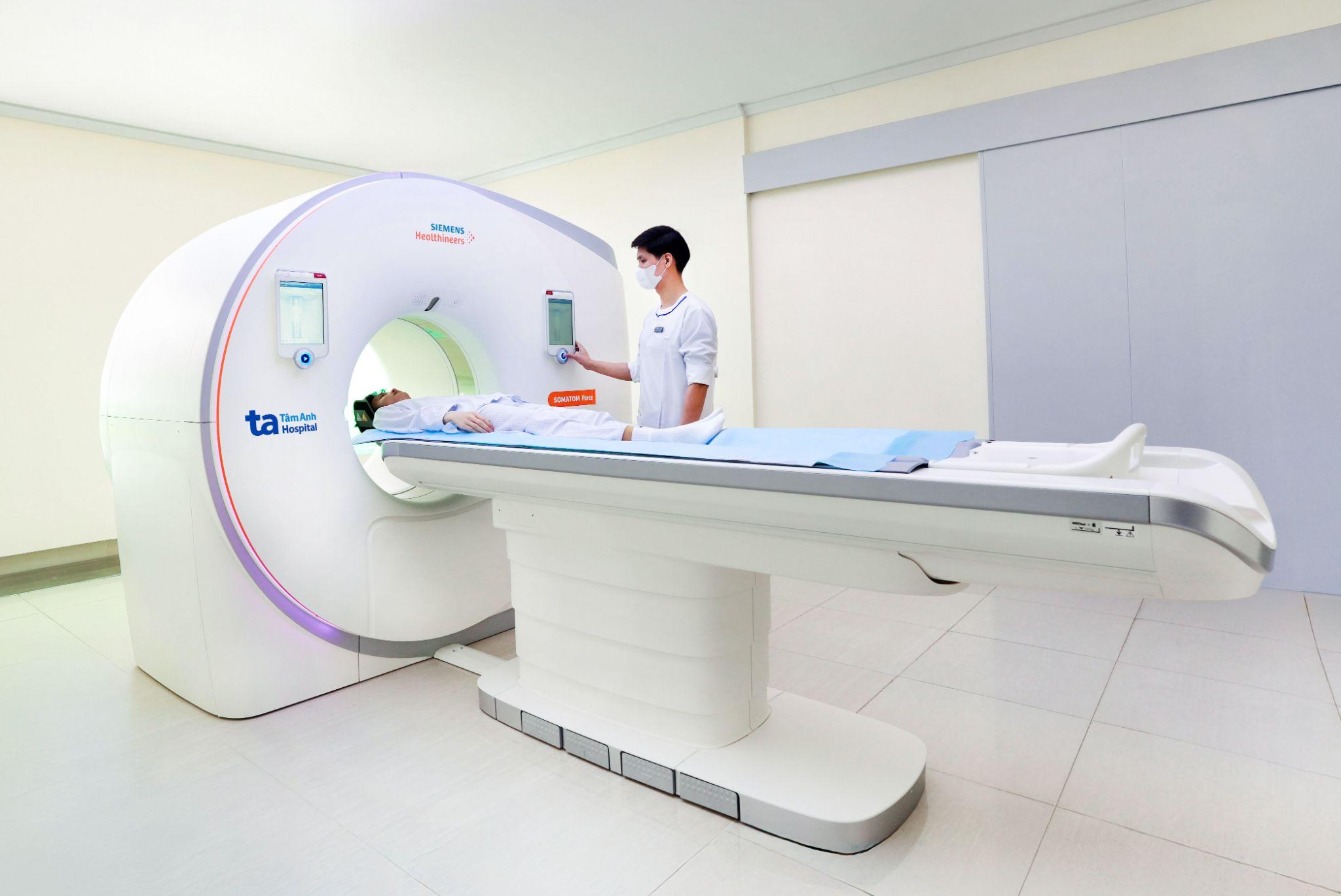Answer:
A lung nodule is a small lesion in the lung tissue, typically round and dense, concentrated with cells, fluid, or tissue, completely obscuring the lung structures behind it. Nodules differ from ground-glass nodules, which are less dense and only partially obscure the underlying lung structures.
Small lung nodules with smooth, indistinct borders are often caused by enlarged lymph nodes, pneumonia, tuberculosis, fungal infections, mucus buildup, scarring, or fibrosis, or lung cysts. Larger nodules with sharp, lobulated, or spiculated borders and heterogeneous density are more concerning for lung cancer. A nodule developing from a pre-existing ground-glass opacity is also often malignant, indicating invasive growth, commonly seen in adenocarcinoma.
In your case, a small lung nodule requiring monitoring means there are no clear signs of malignancy, and infections or inflammation like tuberculosis or fungal infections have been ruled out.
 |
Regular CT scans with the Somatom Force VB30 machine to monitor lung nodules. Photo: Tam Anh General Hospital |
Regular CT scans with the Somatom Force VB30 machine to monitor lung nodules. Photo: Tam Anh General Hospital
If the nodule becomes unstable or changes in size or shape after several months or years of monitoring, a biopsy or bronchoscopy may be necessary to confirm the diagnosis and determine treatment. Stable or shrinking nodules still require further monitoring. In some cases, especially in young people without underlying diseases or risk factors for cancer, lung nodules can disappear spontaneously.
Individuals with lung nodules should consult a respiratory or oncology specialist if they experience any of the following: a cough lasting more than 2-3 weeks (especially if coughing up blood), progressively worsening shortness of breath, persistent chest pain or pain when inhaling deeply, unexplained weight loss, significant fatigue, or loss of appetite. Regular monitoring helps doctors make timely and accurate diagnoses, allowing for prompt intervention if the nodule is malignant.
Nguyen Van Ngan, MSc, MD
Respiratory Department
Tam Anh General Hospital, Hanoi
| Readers can submit questions about respiratory diseases here for doctors to answer. |












